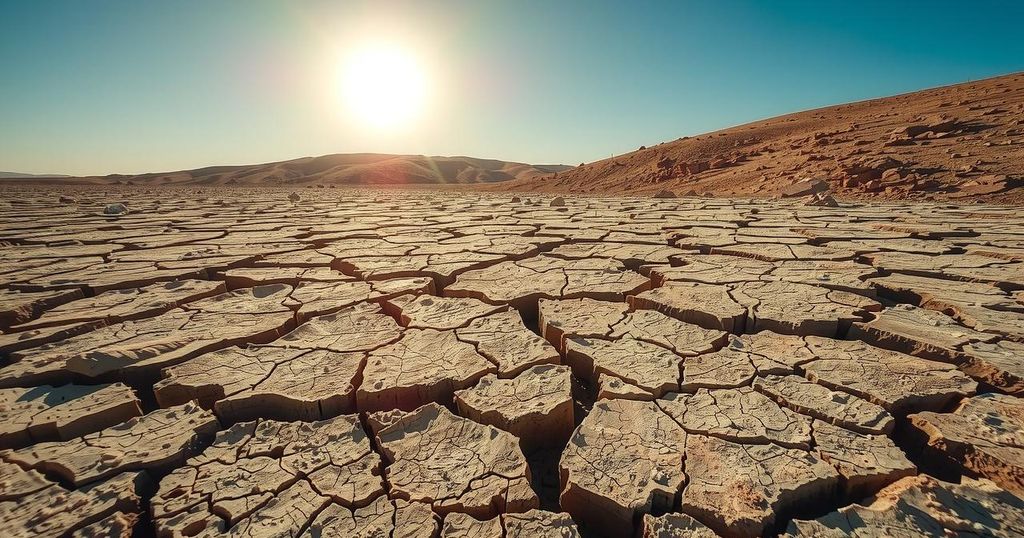Climate change
AF, AFP, AFRICA, CLIMATE, CLIMATE CHANGE, CLIMATE RESILIENCE, ELIZABETH LODOU LOCHAPIO, FOOD SECURITY, IGAD, INTERGOVERN, INTERGOVERNMENTAL AUTHORITY ON DEVELOPMENT, JUBA, KAPOETA, KENYA, KI, KISWENDSIDA GUIGMA, NAIROBI, RED CROSS AND RED CRESCENT, SOUTH SUDAN, WORLD BANK, WORLD WEATHER AT, WORLD WEATHER ATTRIBUTION
Marcus Li
0 Comments
Heatwave in South Sudan Likely Intensified by Climate Change, Study Reveals
A study indicates that climate change has heightened the likelihood of the recent heatwave in South Sudan, with temperatures reaching 40 degrees Celsius. This extreme weather disproportionately affects women and girls, compounding existing socio-economic challenges in a politically unstable nation. The findings underscore the urgency for action in light of continuous environmental threats.
A recent study highlights that climate change has significantly increased the likelihood of the ongoing heatwave in South Sudan. This phenomenon, which has seen temperatures soar to 40 degrees Celsius (104 Fahrenheit), particularly impacts women and girls, exacerbating existing inequalities in a nation already grappling with instability and economic hurdles since its independence in 2011.
The heatwave coincides with a resurgence of political unrest in South Sudan, raising concerns about the deterioration of a peace agreement established in 2018 that concluded a devastating civil war. Following an alarming trend, the government’s response has included closing schools in the capital, Juba, due to alarming health incidents related to heat exposure, which reportedly affected an average of 12 students daily.
According to the World Weather Attribution study, climate change has elevated the extreme temperatures by at least 2 degrees Celsius and increased their likelihood to ten times more than before. Notably, Kiswendsida Guigma, a climate scientist and study co-author, emphasizes that this scenario complicates life for an already vulnerable population facing substantial economic and social challenges.
The study underscores that a considerable portion of South Sudan’s workforce is engaged in outdoor labor amid poor infrastructure, including inadequate air conditioning and basic living conditions. This situation challenges the government-directed precautions to stay indoors. Water scarcity remains critical, with only 8.4 percent of the population having access to electricity in 2022, as noted by the World Bank.
Women and girls face disproportionate effects, as traditional daily responsibilities, such as fetching water and cooking, largely fall upon them. Elizabeth Lodou Lochapio from Kapoeta highlighted the relentless burden on women, stating they must continue their daily activities despite extreme heat.
The researcher Sarah Kew affirmed that dangerous heatwaves exceeding 40 degrees have shifted from being anomalies to a new norm in South Sudan, occurring every two years. Projections indicate that elevated temperatures will persist throughout March, continuing to challenge the resilience of the South Sudanese populace.
In conclusion, the study reveals that climate change is a significant factor exacerbating the heatwave conditions in South Sudan. The intensified heat adversely affects vulnerable groups, especially women and girls, while occurring against a backdrop of political instability and economic challenges. As climate patterns shift, South Sudan faces continued threats not only from environmental disasters but also from the socio-economic implications of these extreme weather conditions. As such, urgent action and support for the affected populations are necessary to mitigate these challenges.
Original Source: www.france24.com




Post Comment